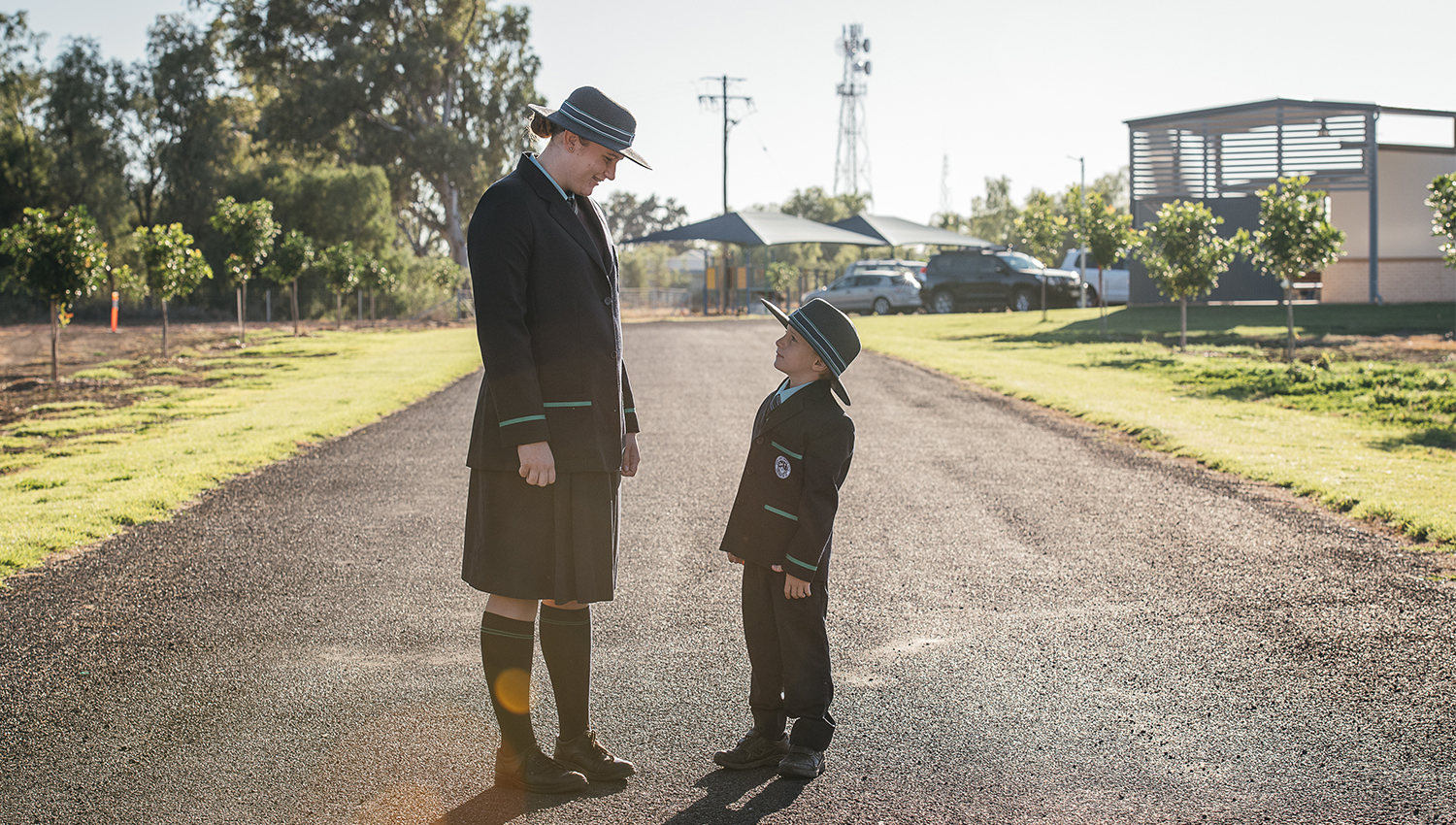The simple acts of inviting dads in for a BBQ chat and giving students the tools to start a conversation with their parents about their school day, has had a profound impact on a Christian school on the Queensland-New South Wales border.
IN the scenic agricultural community of Goondiwindi, a gentle education revolution is taking place at Border Rivers Christian College.
A year ago, mums outnumbered dads at college events, as well as school drop-off and pick-up. Today, men have a stronger presence at the college and their attendance at events has increased dramatically.
They’re also more engaged in home-based conversations about school with their sons and daughters.
Re-shaping Parental Attitudes to Education
Principal Rebecca Montgomery is thrilled with the changing school dynamic and the positive impact it is having on the entire community.
The catalyst for this “meducation” (men in education) was a school-wide parent engagement research project the college embarked on in 2018 – jointly funded by the Queensland Independent Schools Parents Network and Independent Schools Queensland.
Mrs Montgomery has been leading Border Rivers Christian College for four of the five years it has been in operation and is passionate about using evidence-informed practice to enhance teaching and learning outcomes.
She says parents have a profound influence on their children’s attitudes to education. A common refrain Mrs Montgomery heard from her male students was “my dad left school at 14 and he did alright for himself”.
She wanted to disrupt the transfer of these generational mindsets about education.
As part of the project the college undertook a survey of parents to ascertain their perceptions of the value of their own schooling and their involvement in their child’s education.
The results revealed some stark contrasts between mums and dads: mums had a better personal experience of education and were more heavily involved in their child’s education than the dads.
Talking Education Around the BBQ
After the survey was completed the school invited dads, grandads and other significant males in the students’ lives to attend a BBQ to talk about the project and to hear first-hand how schooling was changing.
Mrs Montgomery says the event revealed poor schooling experiences had coloured some fathers’ views about education which in turn had kept them at arm’s length from the school.
The school project team reviewed a wide range of literature on boys’ education and parent engagement to determine the right approach for their school community.
They concluded the best way for their school to engage dads in their child’s learning was to in fact, start with the boys themselves.
The simplest family activities can positively influence student academic and wellbeing outcomes. According to the latest Programme for International Student Assessment (PISA), the top activities that have the greatest impact are:
– families eating a meal together at least once a week
– parents and carers spending time talking with their children generally, as well as more specifically, about how they are going at school.
Talking Education Around the Dinner Table
“We thought, if we could better engage students in their own learning, get them excited about what’s happening at school and then share this with their dads, this might change the dad’s perceptions and break down some barriers,” she says.
The school trialled a range of strategies to improve student engagement in the classroom including goal setting, positive language, student movement and non-verbal communication. Students rated movement as the most helpful and useful, particularly boys.
Teachers provided students with a range of conversation-starters to use at home to talk with their parents, but particularly their dads or significant males in their lives, about what they were doing at school.
Community Goes from Strength to Strength
Mrs Montgomery says during the project period the school also encouraged dads to get involved in the school’s bike week. This led to a group of fathers and grandfathers coming in each morning to fix the students’ bikes.
Now dads are taking days off to attend and help out at events such as the recent cross country carnival.
“Dads will engage when they are involved in areas they feel comfortable. The kids love it. I had a child run past me before the cross country carnival and say, ‘I’m going to run well because dad’s here’. They just want to make their parents proud.”
Rebecca Montgomery, Principal, Border Rivers Christian College
“We’re continuing to build on the positive engagement we’ve generated. One of our next projects is to work with the males in the school community to create a big shed and put a gym in there so the kids can train. Everyone’s really keen to get it going,” Mrs Montgomery says.
She says schools that want to engage all family members need to be more flexible and to remove barriers that can inhibit parental involvement and engagement in their child’s school life. She says a good example of this is school open days.
“When we have an open day we open the school up until 6pm or 7pm to enable our dads to come. I’ve also had a group of dads who wanted to talk about some matters and I opened up the school on a Saturday to make that happen.
“When you go that extra mile for people, they’ll go the extra mile as well.
DOWNLOAD PDF – Border Rivers Christian College Parent Engagement Case Study
Funding Opportunities for Parent Engagement Projects
Parent engagement is a critical area of focus for independent schools and teachers and is enshrined in the Australian Professional Standards for Principals and Teachers.
The Queensland Independent Schools Parents Network website features a wide range of evidence-based research, articles, papers and practical resources on parent engagement in its For Schools section.
The QIS Parents Network also provides funding support to independent schools that want to build and enhance how they engage parents in their child’s education.
This funding is administered through Independent Schools Queensland’s Research in Schools Program.
Queensland independent schools that would like more information on how to apply for parent engagement project funding should contact:
Natalie Horrobin
ISQ Education Services Officer (Teaching and Learning)
nhorrobin@isq.qld.edu.au | 3228 1580




